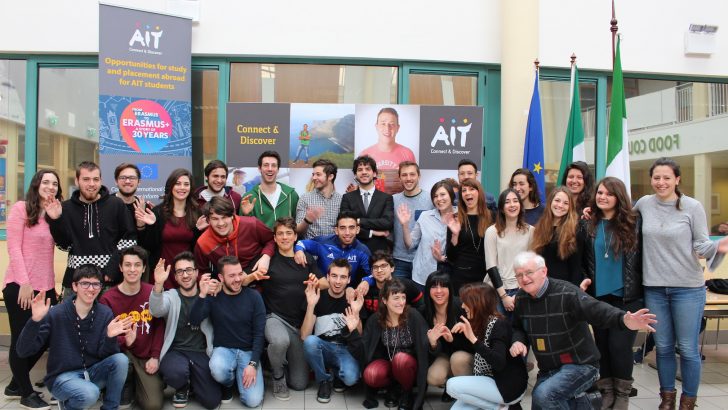A champion of social justice, Fr Shay Casey remains devoted to the Christian message of helping those in need. For over 30 years, priest and chaplain in the Athlone Institute of Technology (AIT), Fr Shay has offered guidance, support and more recently food donations for impoverished students.
Born in Killashee, Co. Longford where he was reared on a farm, Fr Shay gained an appreciation for hard work, helping his family with the animals in any way he could, alongside his Catholic upbringing which was a normal part of his life. “Everyone went to Mass and Confession,” he explains, adding that it was never enforced, offering the image of his father taking his cap off every morning and silently praying.
His family’s faith contributed to his decision to become a priest in 1976, with his brother Fr Sean Casey following him three years later. He was initially sent as a missionary to Zambia. However, after about two years, he fell gravely ill and returned to Ireland to convalesce. While recuperating, Fr Shay was invited to Athlone where he became the chaplain of Marist College, Our Lady’s Bower Secondary School and eventually AIT in 1985.
His residency there is long lived, considering he was only asked to help out for a few weeks 32 years ago but has “been here ever since”, staying in the Chaplaincy Open House in Auburn Heights.
Despite his lengthy tenure, Fr Shay says that things are never stale or boring, continuing “when you’re in the same situation, things always change around you”. This is particularly true in his case, where every year he sees the faces of around 5,500 students of 56 nationalities. His vocation, for him, is a “great mission” where he can make a profound difference to these peoples’ lives.
Usefulness
One way in which he does this is through his role as chaplain. Although some people have questioned the usefulness of a college chaplaincy, Fr Shay responds that at its root, the chaplaincy is a place of “building a community and bringing people together”.
Chaplaincies embrace all faiths whose first role is to “create an awareness of the human situation”. He added that new international students may not know what a chaplaincy is – but they do know that when in an atmosphere of communication and provision, they are being cared for.
Citing the biblical passage Matthew 25:31-46, which speaks of feeding the hungry or clothing the naked, the chaplaincy provides an environment where “isolation” is replaced with “love”, and that this aim is really the “quiet gentle witness to the message of the Gospel”. In response to whether or not chaplaincies should become secular student areas, he maintained that the religious orientation of a chaplaincy provides meaning, as it opens up an “eternal dimension” and a spiritual aspect that people need in their lives.
Fr Shay has described himself as having “many hats” because of the various jobs that he carries out in college life. One of his roles as chaplain is to chat with students who have had bereavements, relationship break-ups or stress about their exams. The Students’ Union has also been extremely helpful in dealing with these kinds of issues, he explained, adding that he’s not a councillor, but “a bridge to it”.
His commitment to the students of Athlone is such that he chooses to live with them, this year sharing his residency with five international students from Egypt, Morocco, Belarus, Romania and Italy. In speaking about the origins of this unique living situation, Fr Shay said that there was “a shortage of accommodation in the mid 80s”, and so people kept needing for a “place to crash”.
Today the students who he lives with help him provide a 24/7 emergency phone line to all of the Athlone students. Moreover, Fr Shay helps in collecting food from the local supermarkets, which is then distributed to all of the students in the area who are in need of it.
“The challenge is to harness this diversity and build a real caring community where no one is excluded or lonely or hungry or homeless and that they know there is always someone they can talk to,” he says.
Delight
Fr Shay says that he “always wanted to live in a community” and the students usually sit down together for an evening meal every day, inviting others to join them.
In fact, on one occasion, Bishop Francis Duffy made an appearance during a Christmas party at the residency, much to the students’ surprise and delight.
Above all for Fr Shay, this example of communal living demonstrates that all people of different faiths can live with one another. He says we must firstly, “search for the common humanity of one another”, and in that way, we can “see the person for who they really are”. “We were always a migrant people,” he says, “we don’t own anything” and so should treat everyone as part of our “family”.


 Colm Fitzpatrick
Colm Fitzpatrick Fr Shay Casey with AIT students during Erasmus week
Fr Shay Casey with AIT students during Erasmus week 